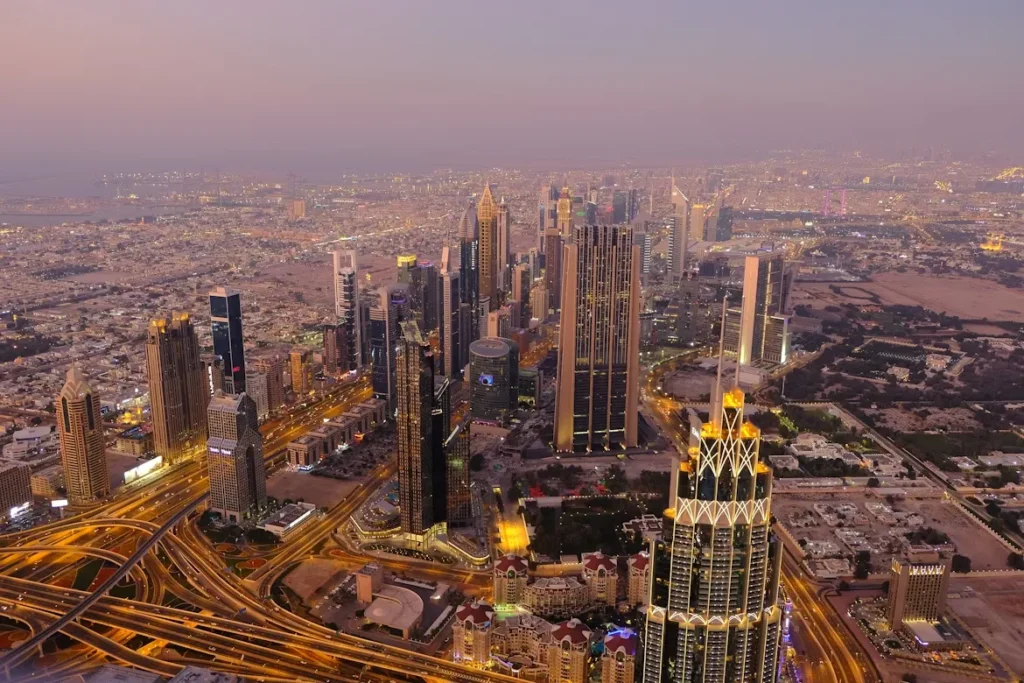Abu Dhabi has made significant adjustments to its real estate laws and policies, therefore indicating a turning point for the property sector of the emirate and its goals as a principal global investment destination. These developments will revolutionize the scene of real estate transactions, management, and dispute resolution, so adding more openness, flexibility, and sustainability to an already dynamic market. On this blog, we will review the specifics of these developments, their significance, and what these mean for residents, developers, and investors equally.
Table of Contents
ToggleWhy Abu Dhabi Changing Its Real Estate Policies?
Abu Dhabi’s real estate is well-known for its flexibility, inventiveness, and appeal to foreign investors. Nevertheless, the emirate’s government is committed to ensure that its legal framework keeps up as the industry grows and worldwide best practices evolve. Initiated by the Department of Municipalities and Transport (DMT), the most recent developments complement a more general scheme to showcase Abu Dhabi as a leading property investment destination globally.
The updated legislation obviously aims mostly for:
- Improve investor security
- Give builders clearer rights and responsibilities
- Simplify and modernize processes of conflict resolution
- Increase transparency and sound government
- Make sure long-term sustainability of jointly owned properties is guaranteed
These objectives are aimed to build a fair, efficient real estate ecosystem that promotes all the stakeholders by means of equity.
Important Features of Abu Dhabi’s New Real Estate Laws
1. One Consistent Definition of Real Estate Activity
The new rules offer a standard definition of real estate activities including sales, purchases, registration, appraisal, management, and operations. This all-encompassing approach ensures that under one, open framework all professions linked to the real estate sector—including brokers, appraisers, and property managers are supervised. By homizing definitions and procedures, Abu Dhabi hopes to lower confusion and increase sector-wide responsibility.
2. Better Developer Privileges and Faster Conflict Resolution
One of the most important developments is the empowerment of developers to break off off-plan sale agreements in event of buyer default without incurring protracted legal procedures. Still, the Abu Dhabi Real Estate Centre (ADREC) a regulatory safety net approves this operation. This simplified technique is meant to reduce legal disputes, speed project management time, and provide developers more control in managing their projects.
3. Modern Joint Owned Property Management
The updated structure defines joint ownership property governance differently. Owners’ committees will replace owners’ organizations with their limited functions to advising and monitoring. Daily operations of these properties will be under control by professional management organizations, therefore ensuring that qualified experts oversee maintenance, service delivery, and financial management. This modification is supposed to improve the operating efficiency and protect the long-term value of shared resources.
4. New Directions for Common Areas and Shared Facilities
Under real estate projects, the adjustments offer a solid structure for the maintenance of common areas and shared facilities. By outlining exact procedures for funding, use, and maintenance, the new laws aim to assure the sustainability and quality of these priceless resources. Large residential and mixed-use developments notably depend on this since the maintenance of common areas can significantly influence property values and quality of life for the occupants.
5. More Strict Market Enforcement and Responsibility
Approved by the Abu Dhabi Executive Council, the new rules contain a calendar of administrative fines for infractions, therefore supporting market discipline. This law is supposed to deter dishonesty in the real estate sector, promote compliance, and discourage malpractice. By assigning all stakeholders developers, brokers, and property managers responsibility for their activities, the emirate is obviously showing its commitment to fair and open business procedures.
The Aims of the Abu Dhabi Real Estate Centre (ADREC)
These improvements start at the Abu Dhabi Real Estate Centre (ADREC). Being the primary governing agency, ADREC has power to track adherence, monitor execution of the new policies, and resolve disputes. Its more power will enable greater industry oversight, higher governance standards, and harmonic interaction among developers, investors, and property managers.
ADREC’s expanded purpose is in:
- Regulating all vocations linked to real estate
- Monitoring contractual clarity and operational policies
- Authorizing developer actions including contract cancellation
- Putting fines and administrative penalties on hold
Abu Dhabi’s real estate industry will be shaped going ahead by ADREC’s centralizing of control and standardizing of practices.
What the Reforms Mean for Those Participating?
For Investments:
The new legislation provide investors more safety and transparency. Simplified conflict resolution, controlled experts, and standardized contracts enable investors approach the Abu Dhabi market more confident. Since the emirate emphasizes responsibility and openness reduces the possibility of fraud and malpractice, it is consequently much more enticing for local as well as foreign investors.
For Builders
Developers benefit from clearer rights, faster dispute resolution, and a more consistent regulatory framework. Under buyer default (with ADREC clearance), contract termination will allow developers management of risk and help to save project schedules. Concurrent with this necessity to adhere to strict professional standards and accountability norms guarantees that only reputable players remain on the scene.
For Residents
Professional management businesses’ entrance will help inhabitants of jointly held properties enjoy better maintenance and management of common areas. The new method promises also that any disputes are resolved fast and that their rights are protected. All things considered, these advances should raise Abu Dhabi’s growing population’s quality of living.
Vision of Abu Dhabi Towards Future
The most recent modifications in real estate laws clearly indicate Abu Dhabi’s commitment to remain leading edge in world property markets. By matching its legal system with international best standards, the emirate is presenting itself as a leader in openness, government, and sustainability.
These advances go beyond only addressing current challenges to future-proof Abu Dhabi’s real estate sector for next decades. As the market shifts, the new regulations will provide a robust foundation for development, creativity, and long-term value generation.
Abu Dhabi Real Estate Market Projected for 2024
One should consider the bigger context of Abu Dhabi’s real estate industry to truly appreciate the relevance of these developments. Driven by strong demand from local and foreign investors, the emirate has seen steady rise in both residential and commercial property sectors recently. The government’s focus on projects on quality of life, infrastructure development, and economic diversification has improved the appeal of the market even more.
Recent market research show that Abu Dhabi’s real estate sector is projected to be robust in view of world economic instability. New policies will most likely boost this resilience by fostering sustainable development, reducing risk, and fostering trust and hence decreasing of vulnerability.
Conclusion
The new real estate regulations represent a notable progress for Abu Dhabi’s property sector. The reforms will create a more open, flexible, and sustainable market by strengthening investor protection, empowering developers, and streamlining of conflict resolution. The growing responsibilities of ADREC and the application of professional management for jointly held assets underline even more Abu Dhabi’s commitment to quality and innovation.
For investors, developers, and residents equally, these changes signal a new chapter of possibilities and confidence in Abu Dhabi’s real estate market. The forward-looking approach of the emirate on governance and control will ensure that it remains a global leader in property investment and urban development as it evolves.





